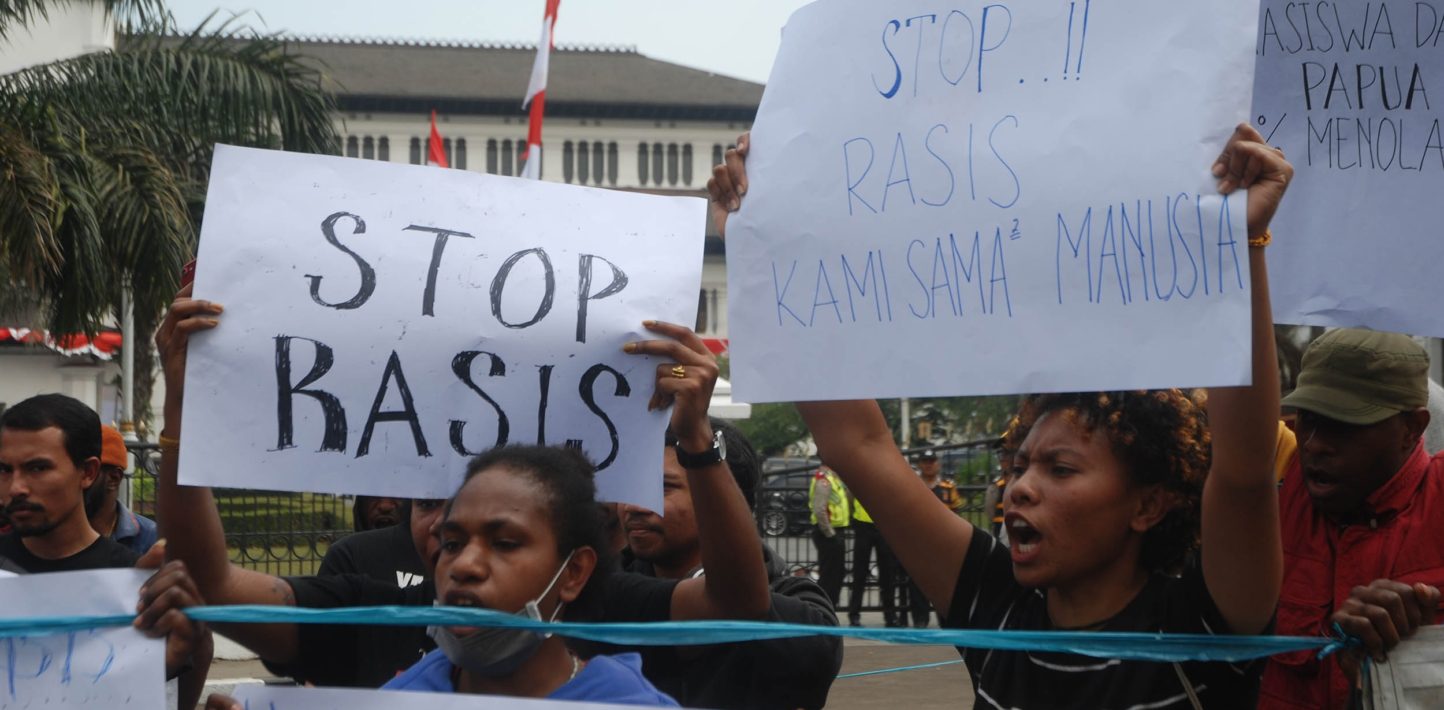Following two widely circulated incidents showing Indonesian security forces using excessive force against Indigenous Papuans, Amnesty International Indonesia and Amnesty International Australia call on the Indonesian government to immediately and effectively investigate the incidents and cease the use of excessive force.
“The two incidents, only three days apart, are just the latest in a long line of discriminatory and violent actions against Indigenous Papuans committed by Indonesian security forces,” Amnesty International Indonesia Campaign Coordinator Novel Matindas said. “The Indonesian government must take the long overdue steps to hold the perpetrators responsible, including superiors who gave relevant orders, and to stop such incidents from repeating in the future.”
A video of the first incident, which occurred on 26 July in Merauke, shows two members of the Indonesian Air Force’s military police apprehending a deaf Indigenous Papuan man named Steven Yadohamang, following a verbal argument between the man and a food stall owner.
While apprehending Steven, the two Air Force police officers pushed him to the ground and pinned him down, with one of them putting his knee on Steven’s back while the other had his foot on Steven’s head.
A video of the second incident, which occurred on 28 July in Nabire, shows local police detaining an Indigenous Papuan man named Nicolaus Mote, for “excessively protesting” at a polling station that was holding a revote for the 2020 Nabire regency elections. After detaining Nicolaus, two police officers led him to the back of a police truck. When he appeared to refuse to get into the truck, one of the police officers repeatedly hit Nicolaus on the head.
As a state party to the International Covenant on Civil and Political Rights (ICCPR) and the Convention against Torture, Indonesia is required to uphold the absolute prohibition of torture and other cruel, inhuman or degrading treatment or punishment. Furthermore, all use of force by law enforcement officers is subject to human rights standards outlined in the UN Code of Conduct for Law Enforcement Officials and the UN Basic Principles on the Use of Force and Firearms by Law Enforcement Officials, which among other thing state that it must be necessary and proportionate. Article 19 of the ICCPR also protects the right to freedom of expression, including the right to protest.
“While the Indonesian Air Force and the Papua Police Chief have apologised for both incidents, the accountability for these incidents cannot end there. Indonesian authorities must conduct a prompt, independent, and transparent investigation into the incidents and make the results of the investigation open to the public,” Amnesty International Australia Campaign Manager, Tim O’Connor, said. “If there is sufficient evidence, the suspected perpetrators must face justice with due process, and the victims must be provided redress and compensation.”
Evidence shows these incidents are not isolated. In August 2019, Indonesia military personnel allegedly called Indigenous Papuan students staying in a dormitory in Surabaya, East Java “monkeys.” The racial abuse triggered widespread antiracism protests in Papua and elsewhere in Indonesia. Several protesters involved in the demonstrations have been prosecuted and found guilty under treason charges. According to Amnesty International Indonesia data, there are at least 31 prisoners of conscience in Papua and West Papua who have been convicted of treason merely for peacefully expressing their political opinions.
Amnesty International Indonesia has also recorded at least 55 cases of suspected unlawful killings by security forces between February 2018 and July 2021, with a total of 92 victims.
“If the Indonesian government truly values the lives of Papuans, it must start demonstrating it by addressing the growing list of human rights violations allegedly committed by state actors in Papua and West Papua, by conducting prompt, independent, impartial and effective investigations,” Novel said. “The government must also ensure that where sufficient admissible evidence is found, suspects are prosecuted before civilian courts in proceedings that meet international fair trial standards and do not impose the death penalty.”

